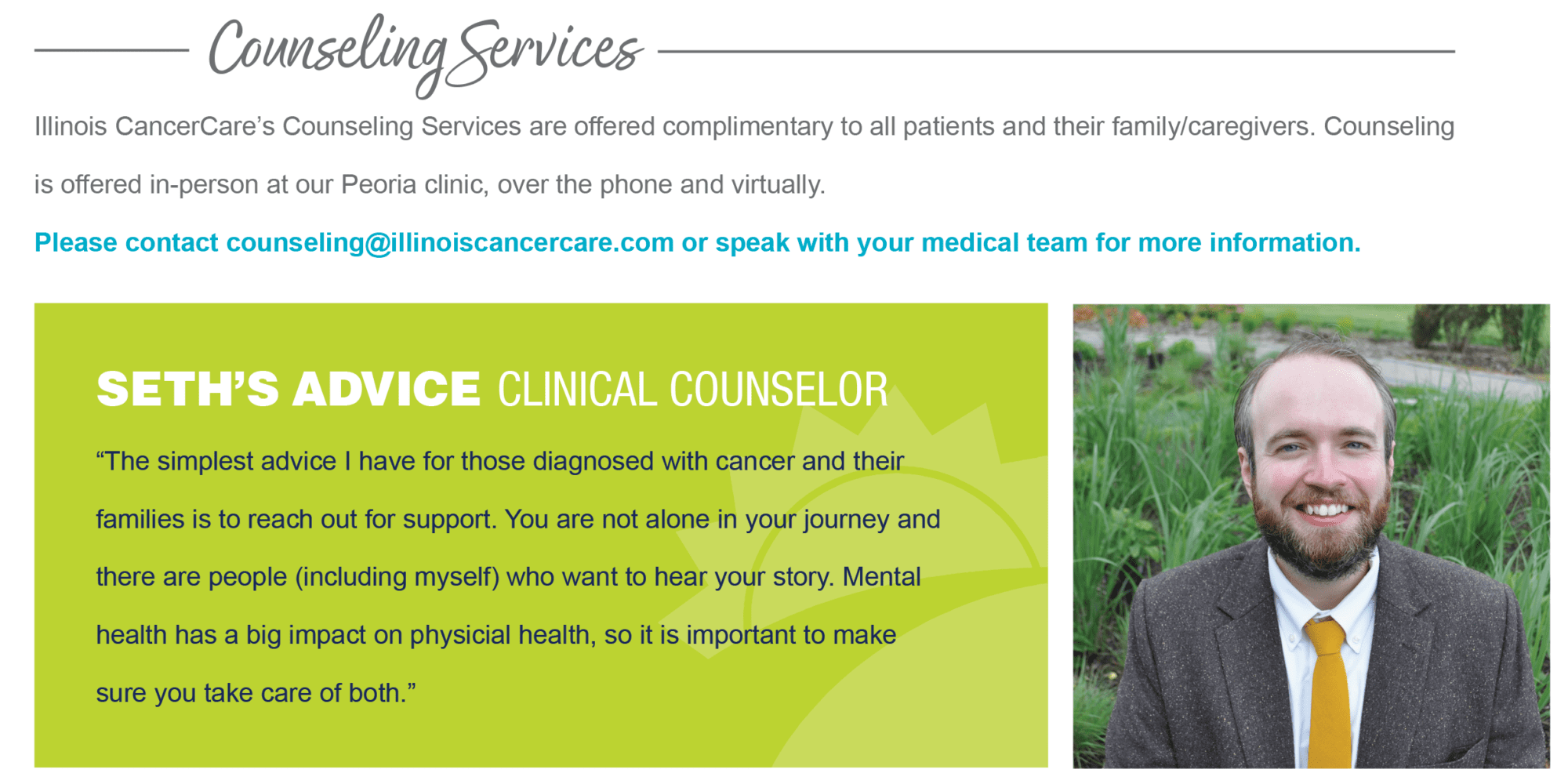Caregivers: Caring For YOU, Too
A cancer diagnosis can impact more than just the patient – it often takes a toll on those who care for them.
Caregivers come in many different forms. It could be a partner, a sibling, a child, a grandchild or even a friend. Regardless of your relationship to the patient, caring for someone facing a cancer diagnosis likely will have an impact on you as you take on the role of caregiver.
Illinois CancerCare’s Oncology Counselor, Seth Errion, MA, LPC, NCC shares some important tips from National Cancer Institute to help normalize some of the thoughts and feelings you may be experiencing. What can you do to help not only your loved one, but yourself as well?
Make time for yourself
- Find time to relax. Take at least 15-30 minutes each day to do something for yourself. For example, try to make time for a nap, exercise, yard work, a hobby, watching tv or a movie, or whatever you find relaxing. Do gentle exercises, such as stretching or yoga. Or, take deep breaths or just sit still for a minute.
- Don’t neglect your personal life. It’s okay to cut back on personal activities, but don’t cut them out entirely. For example, look for easy ways to connect with friends.
- Keep up your routine. If you can, try to keep doing some of your regular activities. If you don’t, studies show that it can increase the stress you feel. You may have to do things at a different time of day or for less time than you normally would, but try to still do them.
- Ask for help. Find larger chunks of time that you can take for yourself by asking for help. Think about things others can do or arrange for you, such as appointments or errands.
Understand your feelings
Giving yourself an outlet for your own thoughts and feelings is important. Think about what would help lift your spirits. Would talking with others help ease your load? Or would you rather have quiet time by yourself? Maybe you need both, depending on what’s going on in your life. It’s helpful for you and others to know what you need.
Join a support group
Support groups can meet in person, by phone, or online. They may help you gain new insights into what is happening, get ideas about how to cope, and help you know that you’re not alone. In a support group, people may talk about their feelings, trade advice, and try to help others who are dealing with the same kinds of issues. Some people like to go and just listen. And others prefer not to join support groups at all. Some people aren’t comfortable with this kind of sharing.
Write in a Journal
Research shows that writing or journaling can help relieve negative thoughts and feelings. And it may actually help improve your own health. You might write about your most stressful experiences. Or you may want to express your deepest thoughts and feelings. You can also write about things that make you feel good, such as a pretty day or a kind coworker or friend.
Look for the positive
It can be hard finding positive moments when you’re busy caregiving. It also can be hard to adjust to your role as a caregiver. Caregivers say that looking for the good things in life and feeling gratitude help them feel better. And know that it’s okay to laugh, even when your loved one is in treatment. In fact, it’s healthy. Laughter releases tension and makes you feel better. Keeping your sense of humor in trying times is a good coping skill.
Source: National Cancer Institute – Caregivers of Cancer Patients – NCI




